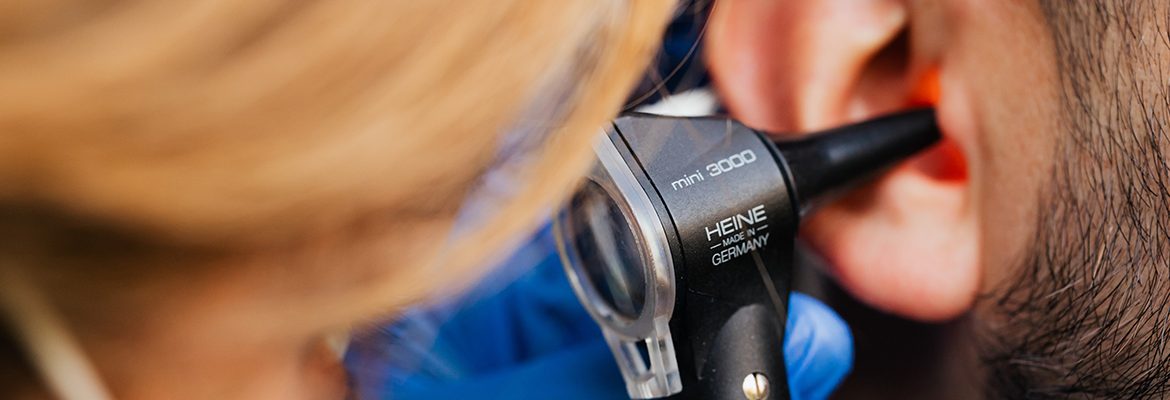Hearing loss exists in several forms. The most common are conductive and sensorineural hearing loss. We measure the degree of hearing loss in dB HL (decibel Hearing Loss), using the following measures:
- Loss up to 35 dB: normal hearing to mild hearing impairment;
- Loss between 35 dB and 60 dB: mild to moderate hearing impairment;
- Loss between 60 dB and 90 dB: moderate to severe hearing impairment;
- Loss above 90 dB: very severe hearing impairment to deafness;
- Loss above 110 dB: profound deafness;
- Loss above 120 dB: vibration deafness.
Conductivity loss
We speak of conductive hearing loss when the hearing problem lies in the outer or middle ear. Sound then comes through muffled. Conductive hearing loss can be caused by:
- A hole in the eardrum;
- fluid behind the eardrum due to an ear infection;
- A blocked ear canal;
- A tear in the eardrum;
- a middle ear infection.
Conductive hearing loss is usually temporary and usually the problems go away on their own. In some cases, something can be done about it, such as tube placement, surgery or simply cleaning the ear.
Perceptive hearing loss
We speak of sensorineural hearing loss when the hearing problem lies in the inner ear. The hearing problem affects the perception of sound, which usually means that the hair cells in the cochlea are damaged. This can be caused by:
- heredity;
- old age;
- noise;
- drugs;
- disease (for example, Ménière’s disease);
- A malfunctioning auditory nerve (bridge angle tumor);
- non-functioning brain.
Perceptive hearing loss cannot usually be remedied, but it can be compensated for. There are various hearing solutions for this, such as a hearing aid.
Hearing loss and its consequences
Reducing or even losing one of your primary senses has a huge impact. People with hearing loss tend to be more insecure, less active, fatigued more quickly and more likely to be depressed. They are more likely to find themselves in unsafe situations, such as in traffic, and more likely to become socially isolated. Are you or do you know someone who (may) have impaired hearing? Then don’t wait and make an appointment soon.
Preventing hearing loss
Not all hearing loss can be prevented, but there are tips and options for protection. Think especially about preventing noise-induced hearing loss, for example at a concert or at work. You can read more about it here.

